11 Baking Mistakes You Didn't Know You're Making, According to Experts
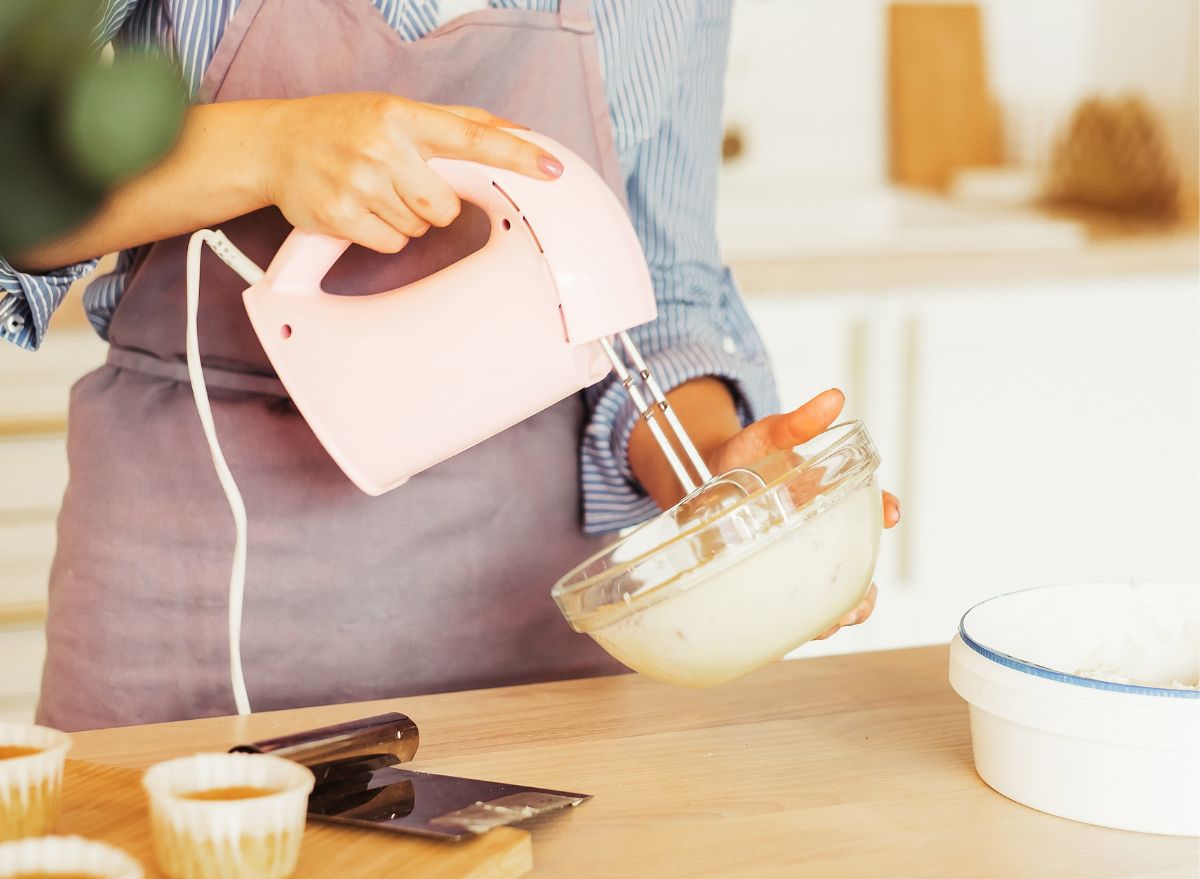
Baking at home is pure pleasure, a project that starts with a challenge and ends with a delicious treat as a reward. There's so much gratification in producing something beautiful and nourishing, plus it's healthier to control the ingredients. Home baking is a win for any cook. But there are also many common baking mistakes you may not even realize you're making.
I love to create desserts, pastries, and fresh bread. My family always rushes to the kitchen when they smell my signature chocolate chip cookies and clean the dish when I make cinnamon rolls from scratch. I have a long way to go to consider myself an expert baker, and I still have much to learn.
To uncover if I'm making baking mistakes in the kitchen—and share them with others in a similar spot—I asked four accomplished chefs to name the errors they see most often. They had fantastic suggestions that will improve the outcome for all home bakers.
I reached out to experts in pastry, starting with a chef who earned his green card from the U.S. government for his talent in the kitchen. Yohann Le Bescond, the executive pastry chef at The Equestrian hotel in Ocala, Fla., was also a finalist on Food Network's "Summer Baking Championship." He knows baking and said that attention to detail adds to his success in the kitchen.
"Pastry is about precision and chemistry. If you respect each step, your success is guaranteed," he says.
Another source for advice was Angie Chan, executive pastry chef in another incredible destination, the Cataloochee Ranch in Maggie Valley, N.C. The hotel's menu has incredible baked creations, such as activated charcoal sourdough with rye and almond panna cotta with balsamic-marinated local fruit.
I also spoke to Victoria Shore, executive chef of the new Thompson Hotel in Savannah, Ga., and Joshua Pickens, head of U.S. production at acclaimed Danish bakery Ole & Steen. The level of expertise for this baking advice is without compare.
Here are a few mistakes that these chefs see home bakers make. I, for one, will take their advice and up my baking game.
Not Pre-Heating the Oven
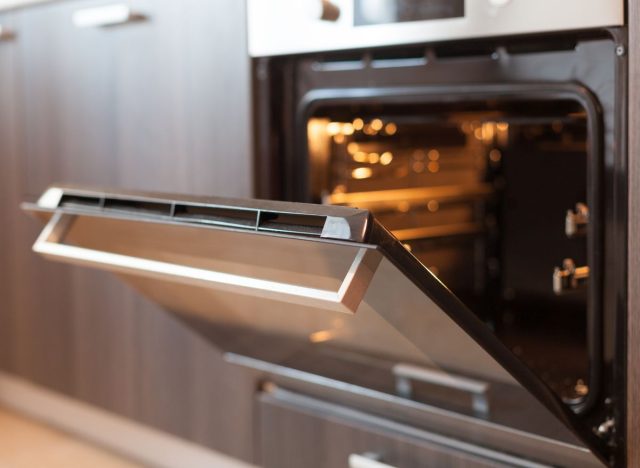
While it seems like a no-brainer, many cooks get impatient and put items in the oven before it's preheated. This can alter the finished product, with the dough spending time at changing temperatures. "Whenever starting a bake, always start by preheating your oven," Le Bescond says.
Not Spraying or Greasing the Pan
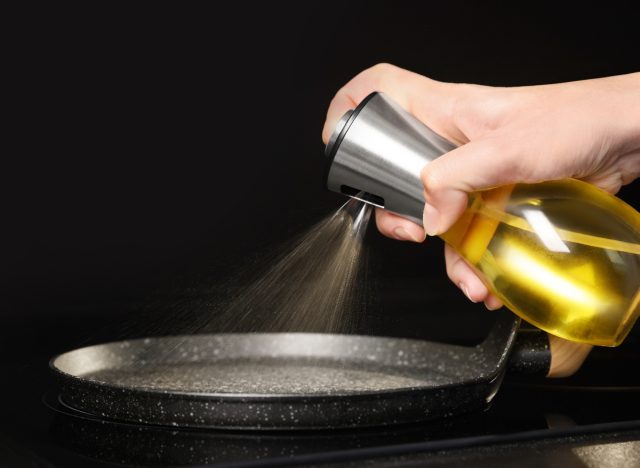
This may seem like a fairly obvious bakin mistake to avoid, but you need to follow the instructions in the recipe that describes how to prepare your baking pan. "When they say spray, grease, or flour, they mean it. All your hard work will be stuck to the pan if you don't," Shore says.
Opening the Oven Too Soon
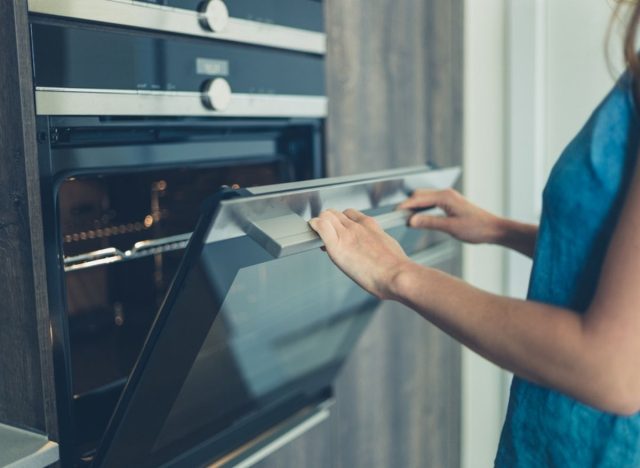
Le Bescond has seen many home bakers give in to temptation and open the oven halfway through baking to check progress. "It's the biggest mistake! The influx of cold air in the oven will make any batter or pastries collapse," he warns.
He recommends waiting until the end of the stated baking time to open the oven door and check the status of the baked items, usually with a clean knife blade.
Not Using the Timer Correctly
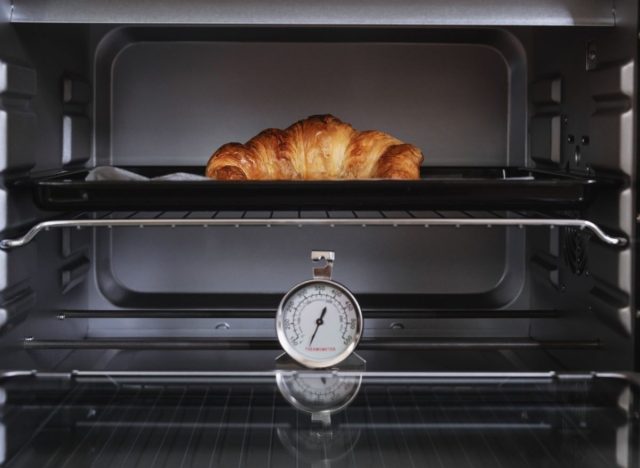
.
Pickens once worked for an oven company and found that chefs didn't always check their baked goods when the oven timer went off. He sets a personal timer in his kitchen to alert him to be ready before the oven timer dings.
"With delicate pastry, items that spend 30 seconds to 1 minute extra in the oven can be the difference between perfect or dry and over-baked," Pickens says.
In his line of work at Ole & Steen, that small amount of time is the difference between a pastry that can be sold or one that goes in the trash. In a home kitchen, you can strive for perfection for better taste.
Baking Warm or Room Temperature Dough
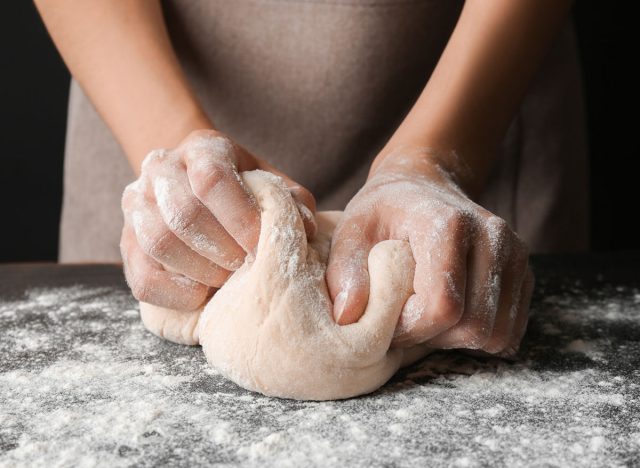
Several chefs mentioned cooling down cookie dough and other pastries before baking. This easy trick results in a crisp edge on cookies or a pie crust that holds its shape.
"I see people not properly chilling pie crusts, buttery cookies, and tart doughs before baking. Making sure the butter is as cold as possible before hitting the oven is critical," Shore says.
Le Bescond takes it a step further. He recommends chilling the dough 30 to 45 minutes before baking and says freezing can work wonders: "Better yet, if you want a doughy, gooey center, bake from frozen."
Not Adjusting for Convection or Non-Convection
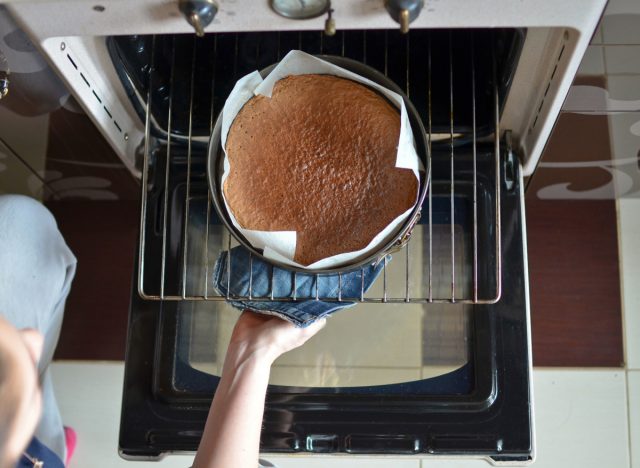
Let's head back to the oven for a suggestion from Chan. She says that many home cooks have convection ovens. The option makes baking multiple sheets of cookies convenient since there's no need to rotate them to get even browning. However, convection has limitations and that can lead to a very common baking mistake.
"It doesn't bake cakes as well, as the high fan speed would tend to destroy the air bubbles created on top of the cake before it rises to its full height or create the crust on top too quickly, leaving the underside undercooked. It can happen to popular baked goods like French macaroons as well," she says.
A convection oven will also cut cooking time. Check with your specifications for your particular oven for more information.
Over-Mixing
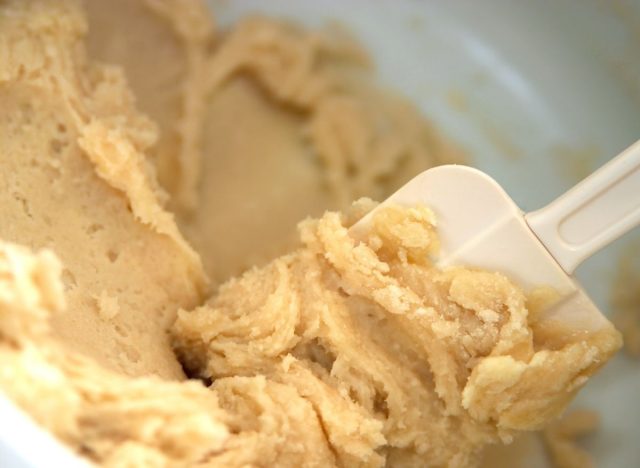
Whether mixing or kneading the dough by hand or using an electric mixer, too much stirring or movement can result in a tough dough. "Over-mixing turns cookies too caked, cakes too dense, and pizza or bread doughs too chewy and tough," Chan says.
Bread dough is especially tricky, but not if you follow the directions.
"Let high-gluten doughs rest between manipulations," Shore says. "If you roll a blob of pizza dough into a nicely shaped ball and then immediately try to stretch it, it just fights you and springs back. But if you let it rest for 30 minutes to an hour, it will be much easier to work with."
Using Too Much Flour on Your Surface
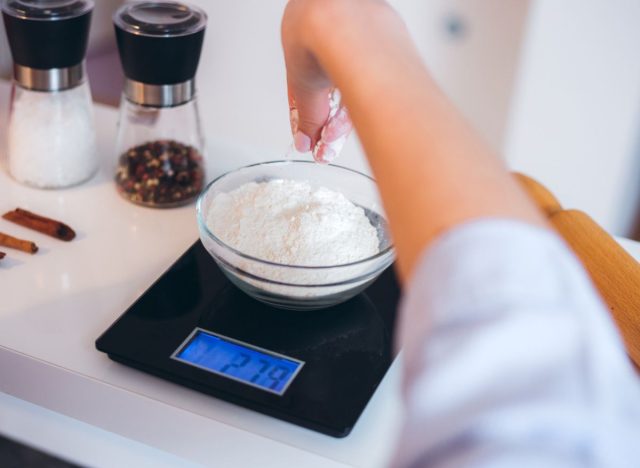
Shore sees bakers adding tons of flour to keep their dough from sticking as it's rolled out. This makes the baked goods tough rather than delicate and flaky. She does have an easy solution to fix this issue.
"If you have a hard time only spreading a thin layer of flour on your rolling surface, try using a fine mesh strainer to distribute the flour instead," she says.
Getting the Wrong Yeast
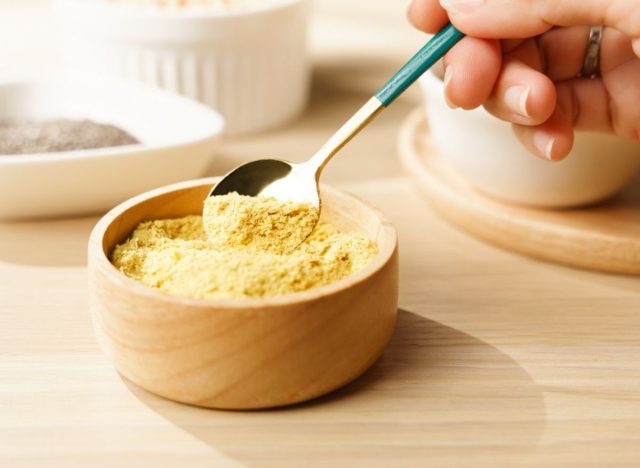
Did you know there is activated yeast, fresh yeast, and instant activated yeast? Le Bescond cautions bakers to use the type of yeast the recipe calls for. "Activated yeast needs to be started in warm water for 10 to 15 minutes before being added to the rest of the ingredients. Always be careful with warm water as it will make your dough rise much faster," he says.
Forgetting to Sift
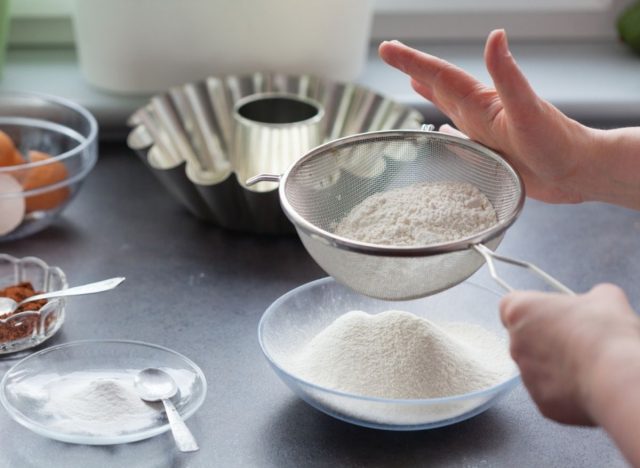
"There's nothing worse than biting into baking soda while eating chocolate cake," Le Bescond says. He recommends that bakers always sift dry ingredients to combine them without getting lumps.
Getting the Measurements Wrong
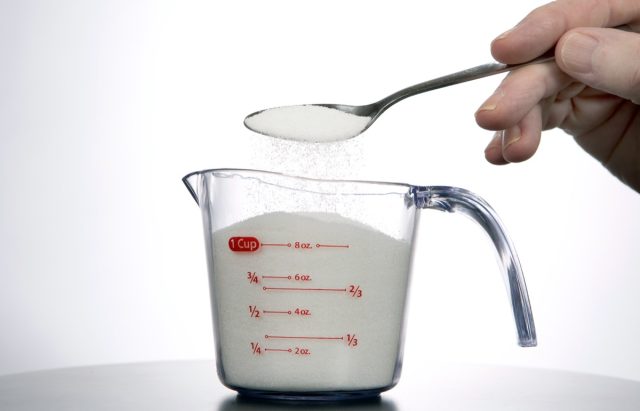
While you might think your measuring tools are wonderful, chances are you could use them more carefully.
"Even though they hold the same volume, typically, using a liquid measuring cup to measure dry ingredients creates problems like spilling and inaccurate amounts due to the difficulty leveling," Chan says.
Le Bescond also weighs in on measuring tools: "With a scale or measuring cups, all ingredients always need to be weighed out. Better yet, measure in grams."









